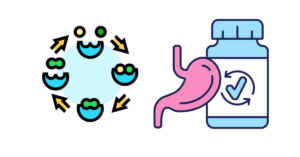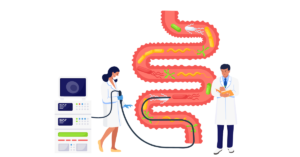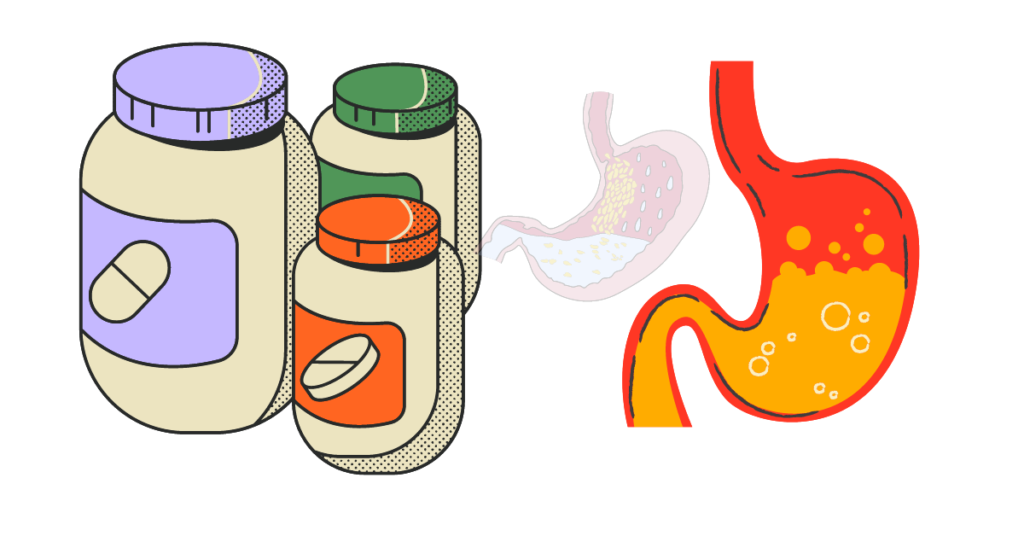Table of Contents
ToggleDigestive enzyme supplements play a pivotal role in maintaining and enhancing our digestive health, a cornerstone of overall well-being. Digestion, a sophisticated and vital process, is the mechanism through which we extract and assimilate essential nutrients from our food. Central to this process are digestive enzymes, specialized proteins that facilitate the breakdown of food into smaller, absorbable components. Despite their crucial role, various factors including age, diet, and certain health conditions, can impair the body’s natural ability to produce these enzymes effectively. This comprehensive guide delves into the significance of digestive enzymes, the impact of external factors on enzyme production, and how digestive enzyme supplements can be a multifaceted solution for supporting and optimizing your digestive health.
Decoding the Functionality of Digestive Enzymes

Digestive enzymes, though often overlooked, are the linchpins of our digestive system. Produced by different organs such as the salivary glands, stomach, pancreas, and small intestine, these enzymes are tailored to target specific macronutrients:
- Amylases: Specialize in breaking down carbohydrates into simpler sugars like glucose.
- Proteases: Focus on dismantling proteins into amino acids, the building blocks of proteins.
- Lipases: Aim at fragmenting dietary fats into fatty acids and glycerol, streamlining absorption.
- Nucleases: Responsible for digesting nucleic acids like DNA and RNA present in our diet.
- Lactase: Essential for breaking down lactose, the sugar in milk, particularly beneficial for those with lactose intolerance.
- Cellulase: Although not produced by humans, it’s crucial for digesting cellulose found in plant cell walls, facilitating the digestion of plant-based foods.
Factors Affecting Digestive Enzyme Production
The production of digestive enzymes can be influenced by several factors, potentially leading to digestive challenges and reduced nutrient absorption:
- Aging: As we age, natural enzyme production tends to decrease.
- Dietary Habits: Consumption of processed or heavily cooked foods can diminish enzyme levels, whereas a diet lacking in fiber and diversity can lead to enzyme imbalances.
- Stress: Prolonged stress can negatively impact enzyme production, contributing to various digestive issues.
- Health Conditions: Diseases such as pancreatitis, celiac disease, and cystic fibrosis can significantly impair the body’s ability to produce enzymes.
The Integral Role of Digestive Enzyme Supplements
Digestive enzyme supplements are designed to complement and support the body’s natural digestive processes. They offer an array of benefits:
- Enhanced Digestion: Supplements assist in breaking down food more efficiently, mitigating the risk of digestive discomfort such as bloating, gas, and indigestion.
- Improved Nutrient Absorption: By optimizing the breakdown of nutrients, these supplements facilitate the absorption of essential vitamins, minerals, and amino acids.
- Relief from Digestive Ailments: Individuals suffering from conditions like irritable bowel syndrome (IBS) or lactose intolerance may experience significant relief with enzyme supplements tailored to their specific needs.
- Support for Aging Digestive Systems: Enzyme supplements can counter the natural decline in enzyme production, providing support for older adults.
- Promotion of Digestive Health: By contributing to a balanced digestive environment, enzyme supplements can reduce the risk of gut imbalances and associated health issues.
Varieties of Digestive Enzyme Supplements

Digestive enzyme supplements are available in numerous forms, including capsules, tablets, powders, and chewable tablets, catering to different preferences and digestive needs. Various formulations are crafted to address specific digestive challenges:
- Broad-Spectrum Enzymes: Contain a mix of enzymes for digesting carbohydrates, proteins, and fats, suitable for those seeking general digestive support.
- Lipase Supplements: Focus on the digestion of dietary fats, beneficial for individuals with fat malabsorption issues.
- Lactase Supplements: Target the digestion of lactose, ideal for individuals with lactose intolerance.
- Protease Supplements: Concentrate on breaking down proteins, aiding individuals facing protein digestion challenges.
- Papain and Bromelain Supplements: Sourced from papaya and pineapple respectively, these enzymes are known for their protein-digesting capabilities.
Navigating the Selection of Digestive Enzyme Supplements
Choosing the right digestive enzyme supplement involves understanding your specific digestive needs and considering various factors:
- Identify Digestive Requirements: Assess whether you need general digestive aid or have a specific condition like lactose intolerance.
- Seek Professional Advice: Consulting with healthcare professionals is crucial, especially if you have underlying health conditions or chronic digestive issues.
- Label Scrutiny: Analyze supplement labels to understand the types and functions of included enzymes.
- Form and Dosage Considerations: Decide on the supplement form (capsules, tablets, powder) and adhere to the recommended dosage.
- Quality Assurance: Opt for high-quality supplements from reputable brands, ensuring potency and safety through third-party testing and certifications.
- Monitor Bodily Reactions: Observe how your body responds to the supplement, adjusting the type or dosage if necessary to optimize digestive health.
Awareness of Side Effects and Precautions

While digestive enzyme supplements are largely safe, it’s essential to be cognizant of potential mild side effects like nausea or abdominal cramps. In case of severe side effects, stop the supplement immediately and consult a healthcare professional. Additionally, individuals with certain health conditions, such as peptic ulcers, should use these supplements under medical supervision.
Digestive enzyme supplements are a potent tool in the quest for optimal digestive health. Tailored to meet various digestive needs, these supplements promise relief from discomfort, enhanced nutrient absorption, and support for aging digestive systems. Making informed choices and seeking professional guidance are paramount in ensuring a harmonious and healthful digestive journey.
